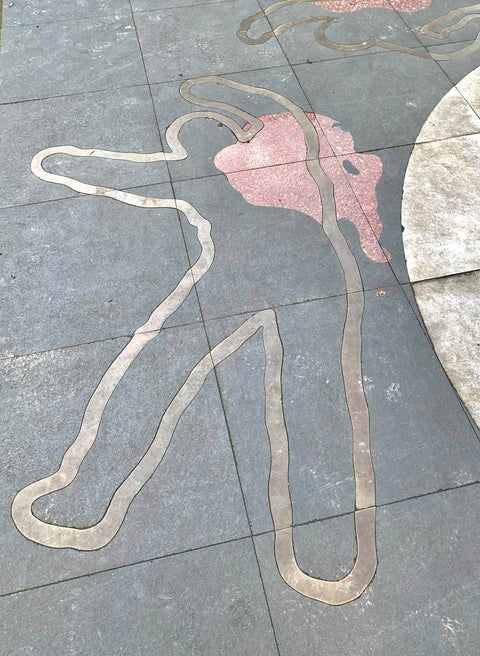A Monument to Democracy
On Quinten Metsysplein Square in Leuven, a striking memorial commemorates the victims of the 1902 general strike for universal suffrage. Created from marble and copper, the artwork measures 6 by 6 meters, consisting of 81 square tiles. Somewhat hidden among greenery and benches, it serves as a quiet but powerful reminder of Leuven’s role in the struggle for democracy.

The Blood Night of April 18, 1902
In April 1902, Belgium was shaken by a general strike demanding universal suffrage. Demonstrations spread across the country, but instead of concessions, the government responded with repression. In Leuven, the Civil Guard replaced the gendarmerie and opened fire on unarmed demonstrators after issuing warnings.
-
Janseniusstraat: Four people were killed.
-
Tiensestraat: Two more people died, and at least five were injured.
This tragic night became known as the Blood Night of April 18, 1902, symbolising the sacrifices made in the fight for democracy.
The 2002 Commemoration
One hundred years later, in 2002, Leuven honoured the victims of 1902. The commemoration was organised by the General Belgian Trade Union Confederation (ABVV) Flemish Brabant, in collaboration with the Federation of Socialist Mutualities of Brabant, the AMSAB Institute for Social History, the Confédération des syndicats Chrétiens (CSC), and the Leuven city archives. On April 18, 2002, a permanent monument was inaugurated, ensuring that the memory of the fallen would not be forgotten.
A Place of Reflection
Today, the Universal Suffrage Monument is more than a memorial—it is a testament to the ongoing pursuit of justice, democracy, and equal rights. Visitors can reflect on the sacrifices of 1902 while sitting among the greenery of Quinten Metsysplein.
(Source: Leuven Gebeiteld_metkaft - Leuven statues.pdf, 2014)
Photo by Aslı Tezcan



